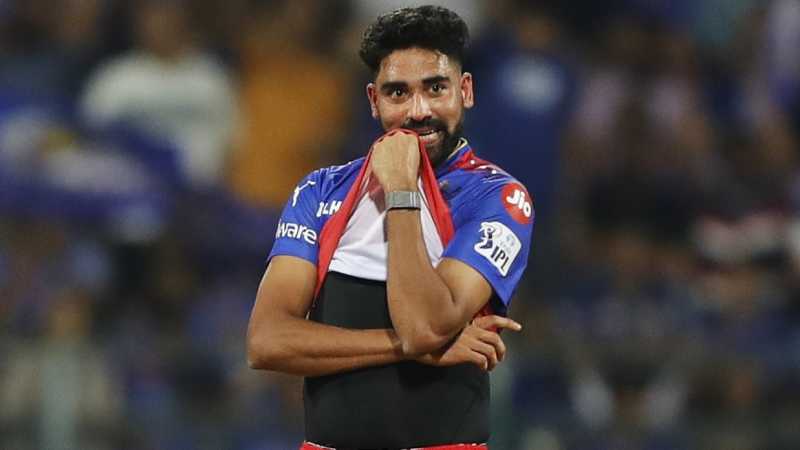After Mumbai Indians razed down Royal Challengers Bengaluru’s target of 197 with 27 balls to spare, losing captain Faf du Plessis admitted that his side was struggling because their bowling group does not have “as many weapons” as the other teams. As a result, du Plessis said, RCB’s batters need to be adept at scoring more runs to even “have a chance” while their bowling group needs to find new ways to be effective.
“At the moment, it feels like, from a batting perspective we have to get and try and push for 220 to have a chance,” du Plessis said after RCB’s fifth defeat in six games. “From a bowling perspective, we don’t have as many weapons. So unfortunately it comes down to the batters to make sure that we use our form and our confidence. The scores that we put on the board are probably going to be the only way we are going to get into the competition.”
On Thursday, all six RCB bowlers turned out expensive with Mumbai scoring at 12.84 per over. Even their most economical bowler Vijaykumar Vyshak bowled his three overs for 10.66 while Akash Deep was the most expensive at 15.71. RCB also conceded 72 runs for no wickets in the powerplay, which left them with no way back.
From a bowling perspective, we have lacked a little bit of penetration [at the start] so we have to go out and find creative ways within our squad we can get a team two or three-down in the powerplay. Just so that you feel like your bowling innings can start on the front foot. It feels, for the last few games, that we are on the back foot after the first few overs.”
Du Plessis also said that a combination of the evening dew and the explosive start provided by Ishan Kishan and Rohit Sharma in their 53-ball stand of 101 forced his bowlers to make errors. He also said that the surface was batting-friendly and Mumbai did better than RCB in using their batting resources.
“You also have to give credit in the way that the boys from MI came out and played,” he said. “Put a lot of pressure on our bowlers. Made our bowlers make a lot of mistakes in the powerplay especially.
“You could see that anyone who came in could find the middle of the bat quite easily. We did know that and spoke about it in the first innings. The dew here looked like it was going to be big so we felt we needed to get 215, maybe even 220. Obviously, 190 [196] or whatever we got wasn’t enough runs.”
“It [dew] is a big thing in some venues as we know. When the dew settles in, it is really tough. You could see the boys were bowling a few full tosses. We changed the ball a few times. It was really, really wet. But that’s just the game of cricket. It is probably the only sport where the conditions have such a big impact.”
How does a team combat dew and the apparent lack of penetration among their bowlers? Du Plessis said that the onus fell on his batters to produce performances that make opponents feel the weight of a big target. He also said that the lack of top-order partnerships barring the 82-run stand between Rajat Patidar and himself was also a factor in their defeat.
Therefore in your first innings here, you make sure you get a score that builds scoreboard pressure,” he said. “I thought we did a good job. I thought we fought with the bat. We were never really in a position where we could really… you know, we lost crucial wickets at crucial stages.
“Myself and Rajat got a nice partnership together and then you lose a wicket and then you rebuild and then you again lose a wicket. With them [Mumbai], they just had the fluency in their innings, their guys came in and played really positive at the end, which gave them the platform for the full crack.”
RCB next play Sunrisers Hyderabad at home on April 15, where they will look to avoid five straight defeats. They are currently ninth with the second-poorest net run-rate of -1.124.
